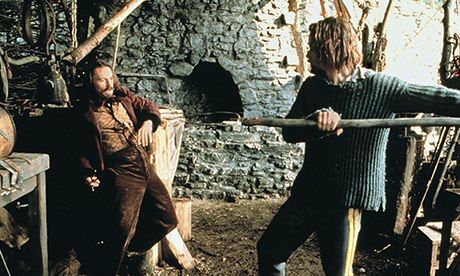
Meeting Antonia Bird in 1999 was a pivotal moment for me, a novice filmmaker. I'd booked a ticket to a preview screening and Q&A of her film Ravenous and lay in wait for her at the cinema, excited that I was going to meet my directing idol.
When she finally turned the corner I was staking out, a large crowd suddenly appeared from nowhere and I thought my hopes were dashed: how would I approach her now? But the throng were autograph hunters of Robert Carlyle: they were only keen on pursuing the actor; I was alone in being solely interested in the director. I told Bird she was an inspiration and asked if she would mentor me. She, very graciously, gave me her business card and told me to get in contact; thus began a connection and friendship spanning almost 15 years.
I'd wanted to meet Bird ever since seeing her debut feature Priest, a superb drama, which had made me first consider the possibility of being a film-maker and eventually led to me pursuing that dream and going to film school. Seeing another woman making the type of films I was interested in gave me the confidence I needed to try to enter the film industry – and indeed influenced my own approach to directing.
Alongside Kathryn Bigelow's Point Break, Priest achieved something I am still in awe of: a female perspective on screen. Each director focuses on provocative action and drama in their films, but, more specifically, they show men can be positively sexually objectified through a female lens. Both films had offered the viewer the male form as an alluring object to be enjoyed, rather than framing or contextualising it in a mocking way, and as an aspiring writer-director and feminist, I sat up and took note.
The sex scene between two men in Priest was absolutely central to the narrative of a homosexual priest whose sexuality was hidden, but it also showed me that male sexuality, of any sort, can be seen as tender, beautiful and also erotically charged. This fundamentally affected my approach to film-making and, indeed, to my later writing of a sex memoir. It showed me that there are ways to challenge the male gaze in works of art and that I could offer women another perspective on sex and sexuality.
Bird also showed me that being a woman in the industry was an isolating experience. When I was a student film-maker, I had sought female role models and found there were few – the majority of female crew members on film sets work in either costume or hair and make-up: check any feature film credits and you'll see this is still the case. I wanted to be a director, though, and loved Bird's style: her ability to achieve extraordinary performances from actors was incredible and her tight direction of action sequences, as well as fast-paced drama, was equally impressive.
Sadly, Bird has been overlooked for both awards and film projects over the years. Many less skilled and less talented male directors have managed a more prestigious, and higher earning, position than her. I often wondered if this was because she was a woman frequently accused of making "men's movies" focusing on provocative action and drama, rather than romance or comedy – as if somehow her films would be less appealing to both women and men because of that. It was actually what I loved about her work: it was passionate and full of fury and took no prisoners – much like Bird herself.
Like me, Bird could be described as "challenging" – we're both assertive individuals and would rarely take shit from people, so not always the easiest people to work with. But she was also incredibly generous and caring and offered feedback on my graduation film Y, from the script all the way through to the edit; she made a point of attending its debut at the Raindance Film Festival in 2000 and I am still touched by that.
My own work took a different path a few years back and I ended up leaving my film career and writing books. Bird and I last met up a couple of years ago, when my second memoir was published, and she told me she was proud of me, which meant the world to me. We talked about working together on a film from a feminist perspective, about sex, but sadly that never saw the light of day due to us both being busy with other projects.
Her death is a profound personal loss for me, but also leaves a massive gap in British television and film and highlights even more the lack of women film directors as role models for young women.
I would hope that the BBC and the British Film Institute now – finally – offer a full retrospective of Bird's work, so that cinemagoers and women film-makers alike can also be inspired.

